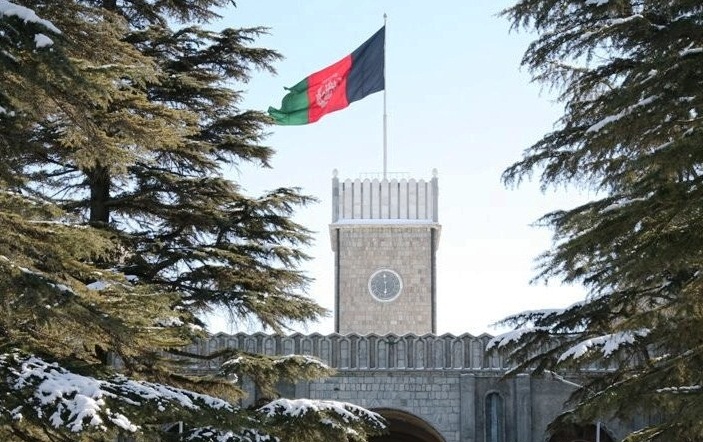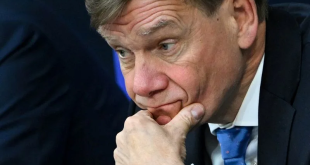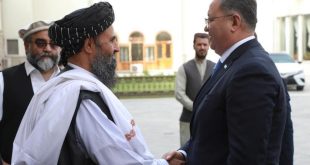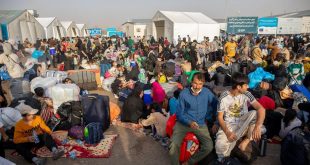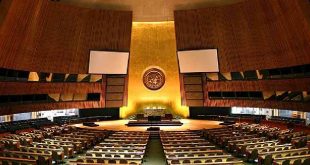By Erin Cunningham-KABUL: Afghanistan’s embattled government is facing a new challenge to its rule: former supporters, disillusioned by what they think is its incompetence, who now want fresh elections to remove the president from power.
The discontent comes as the country is confronting a robust Taliban insurgency and an economy crippled by the withdrawal of foreign troops.
Over the past few months, politicians, warlords, former ministers and other powerbrokers have come out against the government, which they say is paralyzed by infighting and unable to govern.
Critics have lambasted the administration of President Ashraf Ghani and Chief Executive Abdullah Abdullah, who together formed a national unity government after flawed elections in 2014, and they are calling for a snap presidential election to break the deadlock.
The government says that it is dedicated to implementing reforms and that it has made targeting corruption and unemployment priorities. But adding to the urgency is the looming September deadline for launching the mechanism to create a new legitimate government. If that deadline is not met, which is likely, Afghanistan could face a power vacuum that would destabilize the country further.
“If it performed well, people were willing to give the [national unity] government the benefit of the doubt. But it hasn’t. It has proved disastrous for this country,” said Anwar ul-Haq Ahadi, a former Ghani supporter and onetime finance minister under the previous president, Hamid Karzai.
In January, Ahadi announced the formation of his own opposition movement, the New National Front of Afghanistan, to pressure the government and to call for new elections. Recent polls show a sharp decline in confidence in the government and public institutions.
“Given how weak the government is, if there is any more instability, it is unlikely it will be able to rule” after September, Ahadi said. “They have mismanaged the country and lost their legitimacy. They should go back to the people and ask for a new mandate.”
In many ways, the unity government may have been doomed from the start, analysts say. Even its critics say it was undermined by a hastily forged agreement that split power between two archrivals: Abdullah and Ghani.
The deal, brokered by the United States nearly two years ago, called for parliamentary elections and a constitutional assembly to legitimize the government by September this year. The assembly would decide whether to permanently enshrine the role of chief executive as that of prime minister, a more authoritative position.
But none of those steps has been taken. Instead, government squabbling over basic decisions has only hindered reforms.
The stalemate is so bad that the two sides can’t agree on a nominee for defense minister. And Kabul, a city of 4 million people, is still without a mayor because of the deadlock.
“Abdullah and Ghani — they can’t work with each other. If one of them says turn right, the other will say turn left,” said Safiullah, a 28-year-old fruit vendor in Kabul who, like many Afghans, has only one name.
The two camps maintain separate staffs, which rarely coordinate, current and former officials say. Even senior advisers say they have stopped attending weekly cabinet meetings, where the government’s dysfunction is on full display.
“The issues they debate at the cabinet meetings are only minor. They don’t address any major issues facing the country,” said Ahmad Zia Massoud, Ghani’s special representative for reform and good governance.
“This is why I’m reluctant to go,” he said of the meetings. “They don’t talk about education or the economy. And resentment of the government is high.”
Despite his position in the administration, Massoud has joined others in Afghanistan’s political elite in criticizing the performance of the unity government.
Ghani’s military adviser, Seyyed Hussein Anwari, recently reprimanded the government in public comments to supporters. They had gathered to greet him at the Kabul airport after he returned from a trip to India on Friday.
“When it comes to campaign promises, I am sure that the two leaders [Ghani and Abdullah] have realized the fact that they have not delivered on their promises,” said Anwari, who is chairman of the Islamic Movement Party, according to Afghanistan’s Tolo News. “Nothing was achieved in the areas of security, economy, peace, [the] fight against corruption and improving political stability.”
Another new opposition leader, Mohammad Umer Daudzai, also served in Ghani’s cabinet and advised him on peace talks and security matters — until a few months ago, when he said he had grown disenchanted by the government’s lack of progress.
Afghanistan’s economy is sluggish — it grew just 2.5 percent last year — and thousands of Afghans lost their jobs when foreign troops left the country, Daudzai said. But the government has done little beyond raising taxes. He was once hopeful, but now he says the government should resign.
“We expected some economic shocks after the drawdown of troops, but we didn’t expect it to be this bad,” Daudzai said, adding that slow growth andjoblessness have been aggravated by rampant corruption. “And there was no remedy — there was no plan to deal with the shocks.
“I was optimistic. I thought the unity government would mean we were more united,” he said. “But now we’re more divided than we have been in the past 14 years,” since the Taliban fell, he said.
In December, Daudzai and other political figures announced what they called the Council for the Protection and Stability of Afghanistan, an opposition alliance that is pushing the government on elections and reforms. The council includes some notorious warlords, but Daudzai believes he lends it some important credibility.
“There is a larger bulk of people like myself, who, for one reason or another, have moved to the opposition,” he said.
“There will be a political vacuum in September” when the agreement expires, Daudzai said. “And where will that lead?”
If the September deadline passes, “we will certainly see trouble ahead,” Massoud, the special envoy, said.
Abdullah’s spokesman, Javid Faisal, said the two leaders “are working together with an emphasis on the national interests and well-being of the nation.”
Ahadi, the former finance minister, says his followers don’t want to raise tensions. “But where does this illegitimacy stop?” he said. “We don’t want to create a situation where people take to the streets, but there is a possibility of widespread demonstrations.”
Safiullah, the fruit seller in Kabul, says he agrees.
“I support early elections, and I pray Afghans will get rid of this government as soon as possible,” he said. If not, “I will be the first to go to the streets and protest.”—(Washington Post)
 Afghanistan Times
Afghanistan Times
